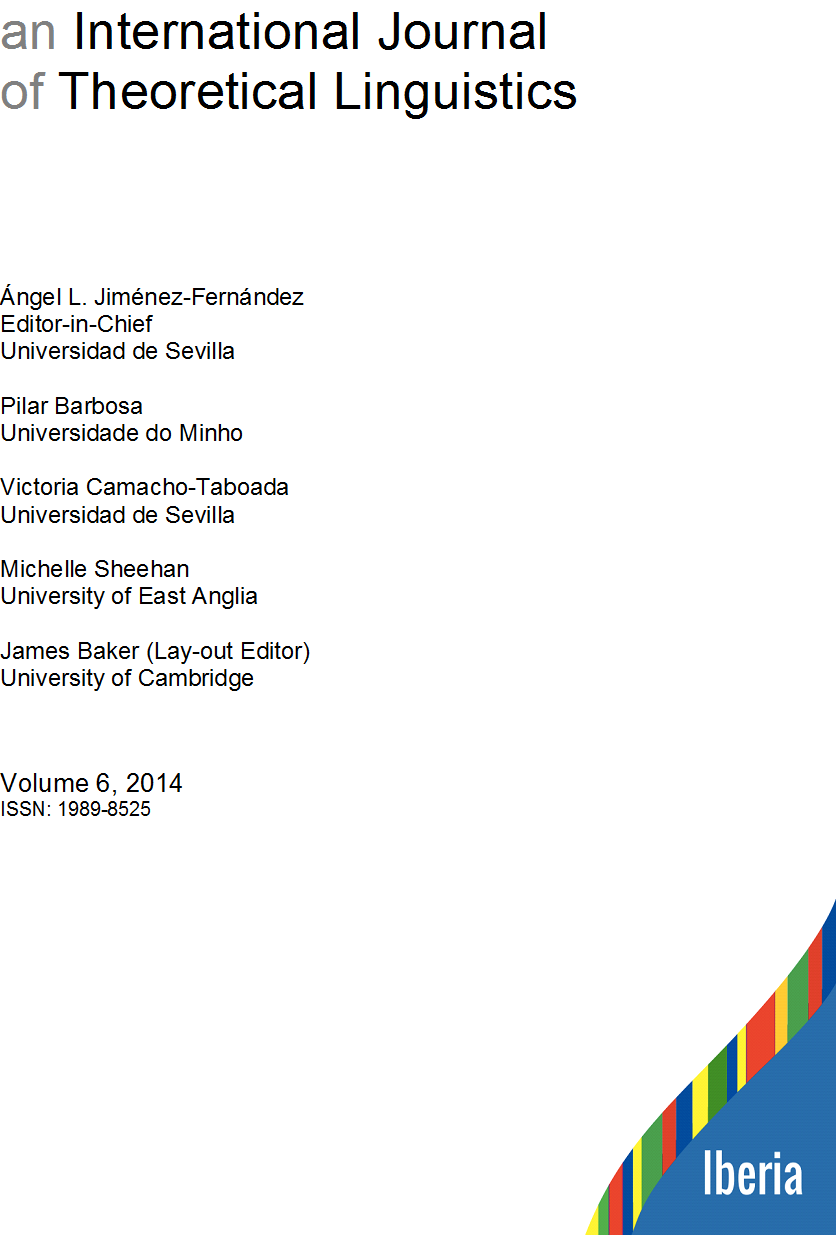Different types of nouns, different types of projections
Resumen
This paper proposes (1) for Basque nominal domain. Expanding on the ideas
of Distributed Morphology, all nouns are syntactically derived from a categorically
unspecied root, which is nominalized by an n-head. With deverbal nouns, this unspeci
ed root is rst dominated by a series of structure-creating nodes (V-v). Event
nouns take an external and an internal argument due to their argument structure,
and have an event reading, while result nouns have the option to take an adjunctexternal
argument and an internal argument, and have a referential reading. Thus,
event nouns project the v that introduces the event reading and the external argument,
while result nouns project a defective v* that has a non-active reading and
does not introduce an external argument (Kratzer 1996). With common nouns,
however, the »RP merges directly with the little n, making impossible for them
to take arguments. Finally, with result nouns and common nouns, a possessor1 is
possible. Hence, two types of n are proposed: n* introduces the possessor, while n
does not. The possessor raises to the Spec-FP position along with the external and
the internal argument.
Descargas
Descargas
Publicado
Cómo citar
Número
Sección
Licencia
Las ediciones impresa y electrónica de esta Revista son editadas por el Secretariado de Publicaciones de la Universidad de Sevilla, siendo necesario citar la procedencia en cualquier reproducción parcial o total.Salvo indicación contraria, todos los contenidos de la edición electrónica se distribuyen bajo una licencia de uso y distribución “Creative Commons Atribución-NoComercial-SinDerivar 4.0 Internacional”

